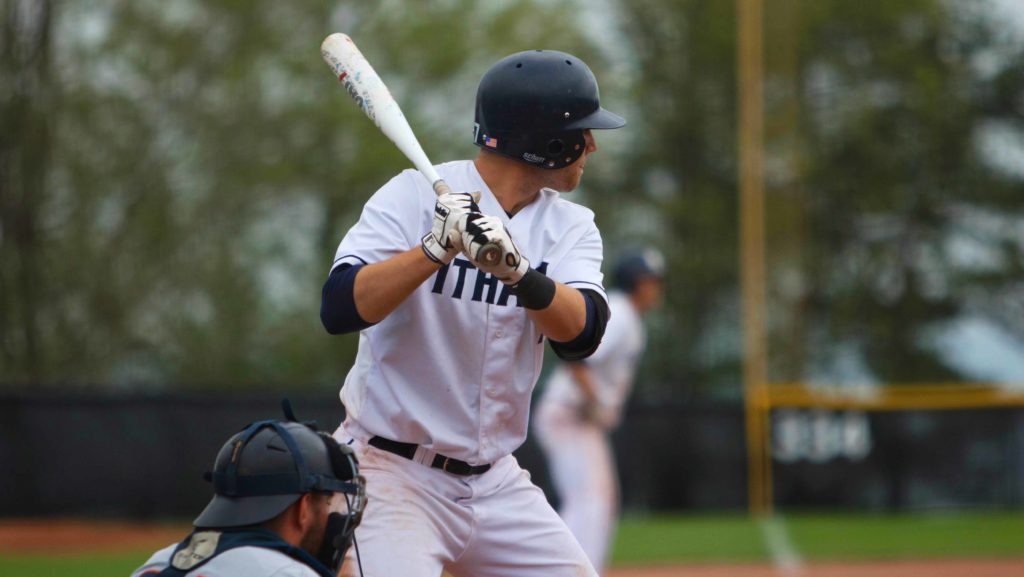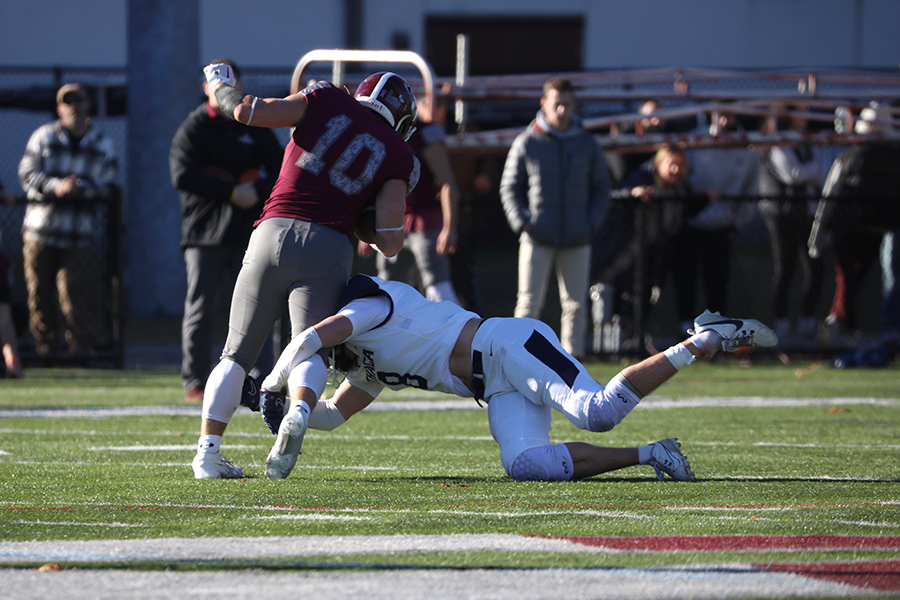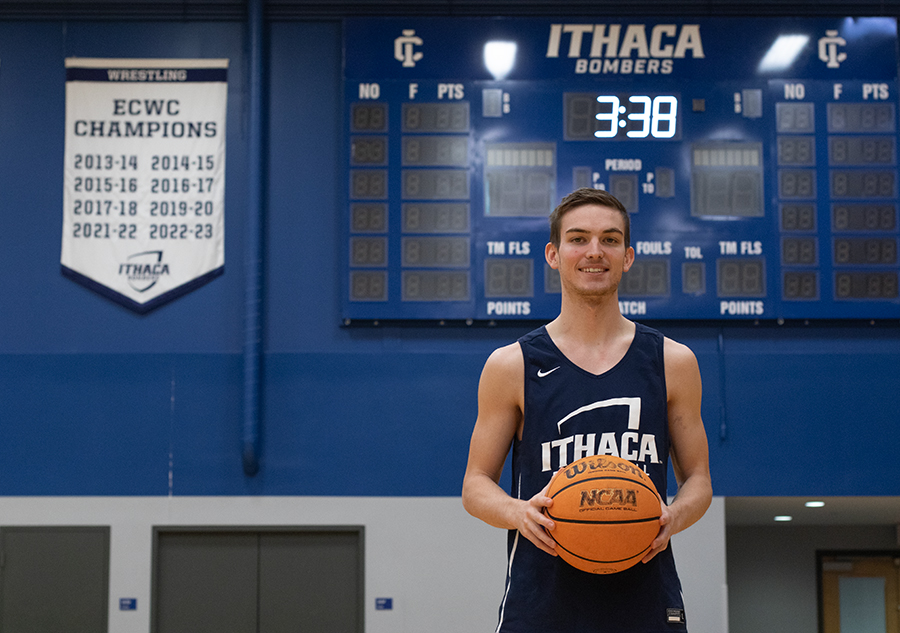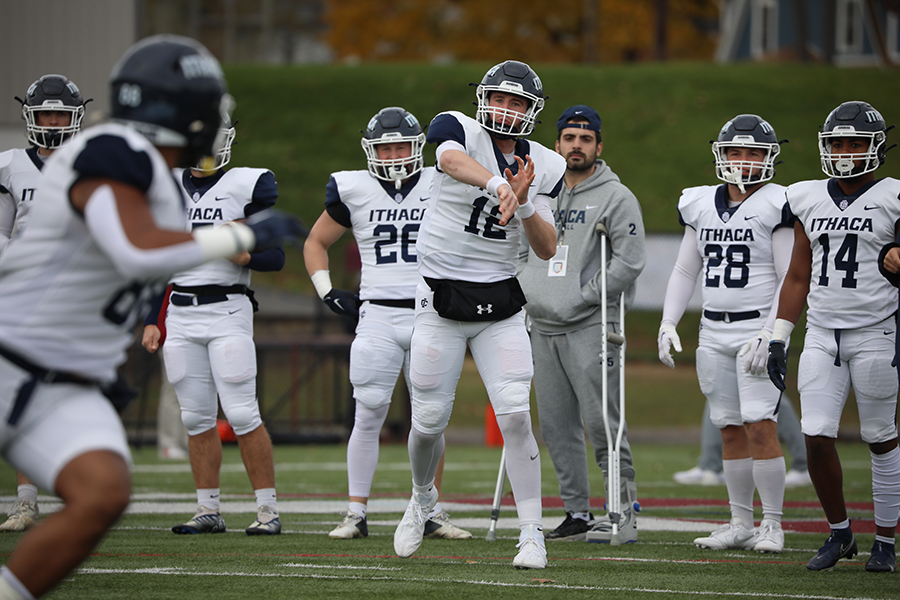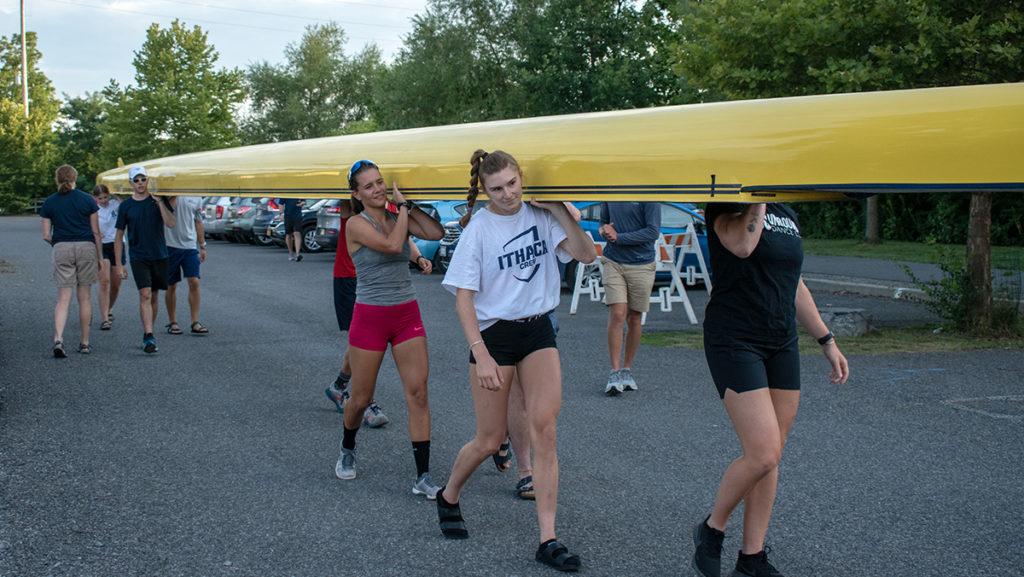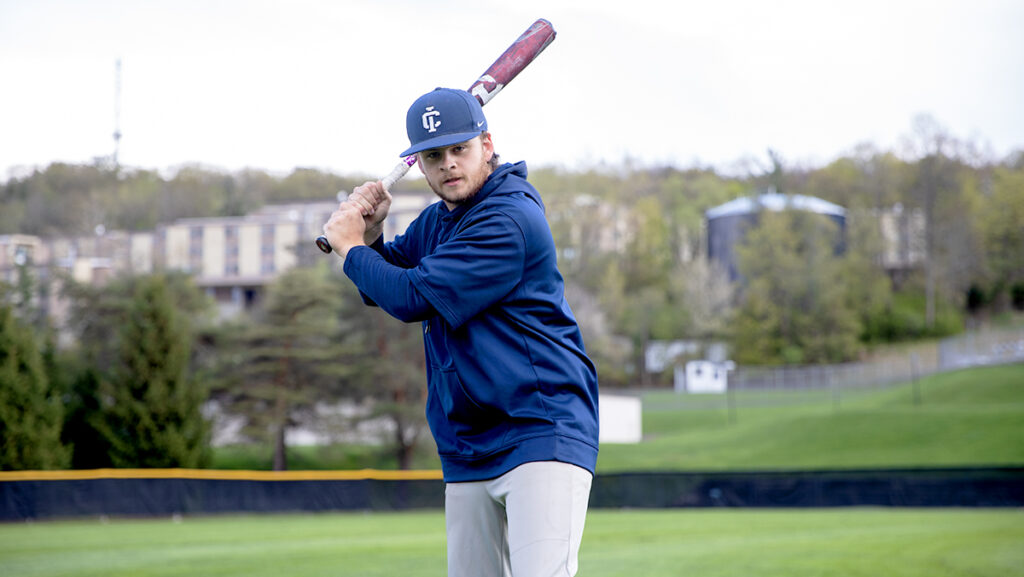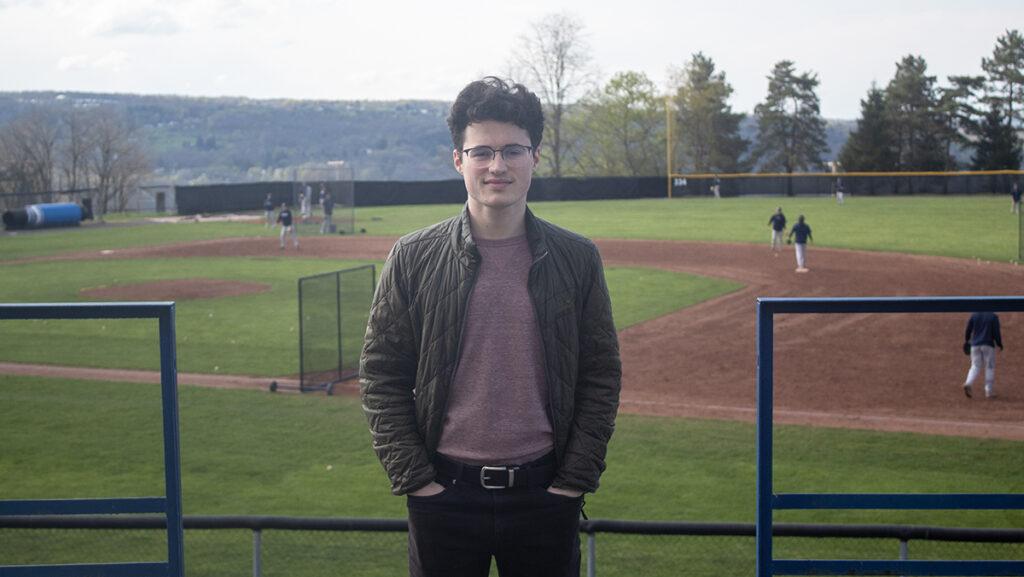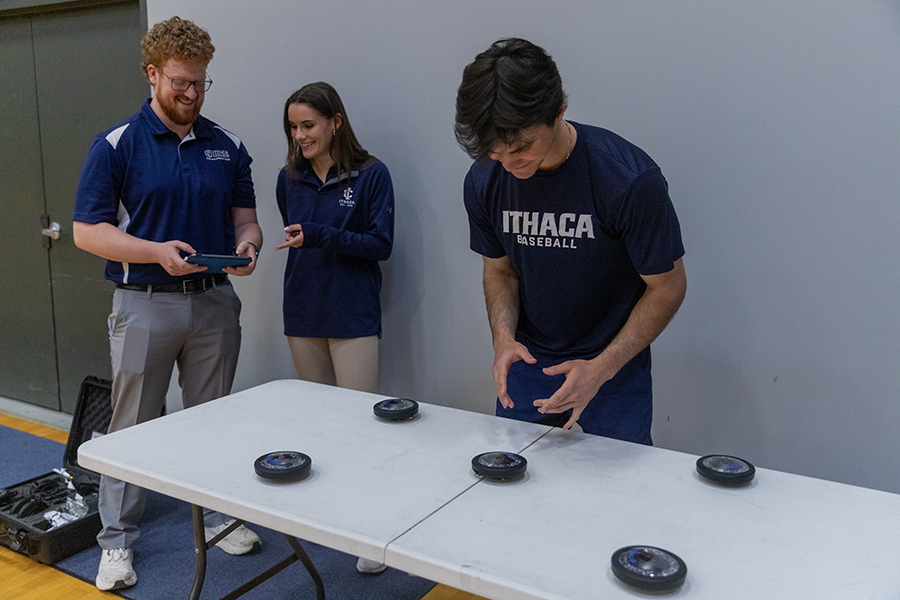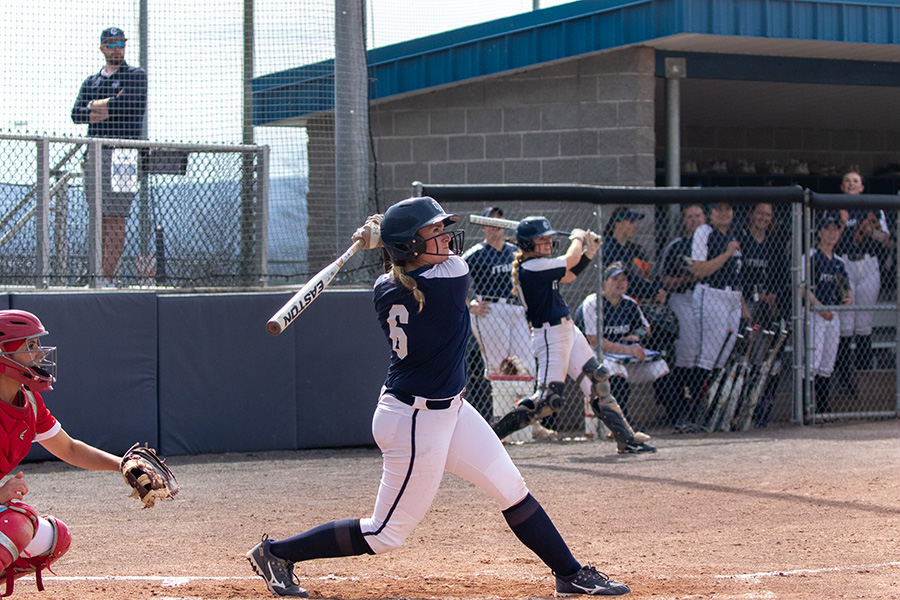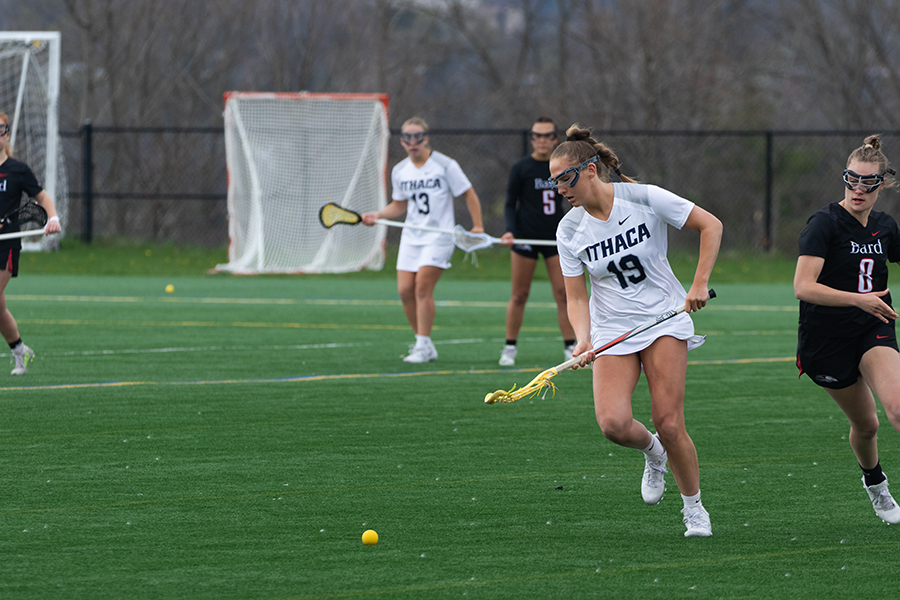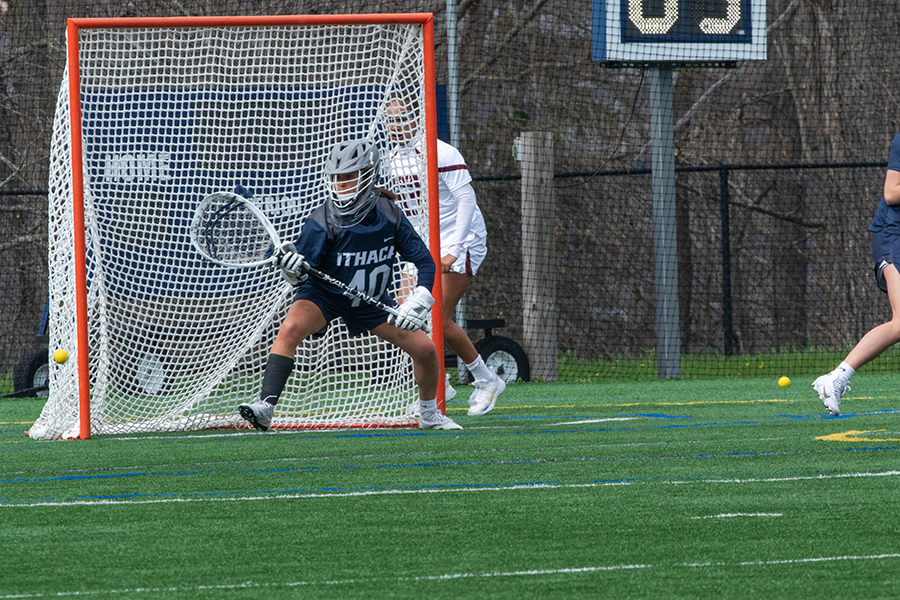Trevor Thompson ’17 ended his career as an athlete when he stepped off Freeman Field as an Ithaca College baseball player, but his passion for sports did not end there. He now serves as a seasonal intern athletic trainer with the New York Jets in the NFL.
While at the college, Thompson was a one-time Second Team and two-time First Team Empire 8 All-Conference player. As a sophomore, he was named to the American Baseball Coaches Association/Rawlings NCAA Division III All–New York Region team and the Collegiate Baseball News Preseason watch list his junior year. Thompson also made D3baseball.com’s Team of the Week in March 2016. During his time at the college, he studied athletic training.
Staff writer Connor Wood talked to Thompson about his experience on the college’s baseball team, how he began working with a professional football team and how COVID-19 has impacted his job.
This interview has been edited for length and clarity.
Connor Wood: How did you know you wanted to be an athletic trainer?
Trevor Thompson: My freshman year of high school, I got a concussion playing soccer. I went to my physician after a week, and he gave me the OK to go. I went back to my athletic trainer and let him know, and he questioned whether it was a full clear or not. I questioned him on what the problem was, and he told me to go on the bike for a nice, easy 10-minute ride. Then, he had me do intervals, pedaling a little harder and getting my heartbeat up, and immediately I started feeling nauseous and figured I was not good to go back. That got me interested, and I wanted my athletic trainer to tell me more about what he does and how he knew I wasn’t going to respond well. Over high school, I did an independent study, and I shadowed him at football games or at the clinic a couple hours a day. I really like sports, but specifically the medical aspect, and that’s how I found athletic training.
CW: Tell me about your experiences on the baseball team at the college.
TT: I played all four years, and I loved all four years. I had a couple Division I offers, but it was important for me to play at a high level. Everyone knocks the Division III level, but … we were playing meaningful games. I loved all my teammates. I still talk to a lot of them. Traveling to California [for spring training] was great, and I had the privilege of being a captain my senior year. I really do miss being at Ithaca and playing baseball for sure.
CW: What tools did the college give you in the athletic training program that allowed you to succeed in the field?
TT: At bigger schools, you are not allowed to work with the athletes, but at [Ithaca College], it was all about the learning experience. The athletes at Ithaca were really good about helping us and telling us what worked or what didn’t, and we learned from that. The culture of Ithaca athletics being so intertwined with the educational aspect of athletic training was something that I got to be hands-on with. Going into the specifics of education, they teach students to be good clinicians first. You can only read so much where that information is just information, but putting that to test in a real–world scenario was something that Ithaca did and helped me greatly.
CW: How did you get to the position you are currently at working with professional athletes?
TT: I graduated Ithaca in 2017, and then I did a summer internship with the [Baltimore] Ravens [NFL team]. I went to graduate school at Old Dominion [University] in Virginia, and I was a graduate assistant [athletic trainer] there with wrestling. … I was looking for football positions long term, but it was better off for me not to work football in grad school because I was on my own for the first time. I wanted to be able to make my own decisions but also make my own mistakes and learn how to be on your own. It is very different. No matter how much time I spent at Ithaca [as a student trainer], when you see someone go down on the court or field and look over your shoulder and realize you are the only person that can help, it is humbling. I knew I wanted to be back in the NFL after my two years [at graduate school] were over, so I applied for a seasonal internship to six different teams. I had interviews with the Jets, [Indianapolis] Colts and [Jacksonville] Jaguars. The Jaguars kept their intern from the previous year, and then I had offers from the Colts and the Jets. It came down to being closer to home. I had just been away for two years, so I picked the Jets to be a little bit closer to my family.
CW: How has your job as an athletic trainer changed throughout the coronavirus pandemic?
TT: It has not really changed so much as far as our responsibilities. We just have a little more responsibility this year. We have to make sure everyone is wearing their masks in the clinic, educating them on how it spreads and giving all the information that comes along with this virus. Not me in particular, but the athletic training department of the Jets in general is in charge of all the testing, so that is probably the biggest piece. Our responsibility is still taking care of our players and making sure they can still play on Sundays safely and be in the best shape they can be.


